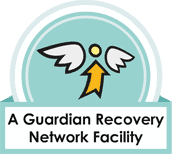Addiction and mental health concerns go hand-in-hand. Both directly affect the brain, and both can lead to a variety of similarly disruptive and difficult-to-manage symptoms. They are also closely linked by cause and effect. In some cases, unresolved mental health issues will lead to substance abuse and dependency. In other cases, substance abuse will lead to mental health issues. While this close link can sometimes provide a “chicken or egg” scenario, one thing is for certain – in order for recovery to be maintained, all existing disorders must be treated simultaneously. Up until the mid 1990s, those who presented symptoms of mental health disorders and addictive disorders were treated for each condition separately. Mental health was treated in psychiatric hospitals while addiction was treated in residential rehabilitation centers. The rates of relapse remained exceptionally high among those who were receiving treatment for one disorder and not the other. For example, say an individual struggling with major depression and alcoholism received adequate treatment for depression in a mental health facility. No matter how effective this treatment was, the individual would continue drinking upon his or her release – drinking so heavily that prescribed antidepressants stopped being taken, and the symptoms of depression quickly resurfaced. It was discovered that in order for an individual to maintain recovery for one issue, all existing issues had to be treated concurrently. This led to the rise of dual diagnosis addiction treatment.
The Prevalence of Dual Diagnosis
Dual diagnosis treatment is not uncommon – it was recently estimated that one of every four adults with a diagnosed mental illness also struggles with substance abuse or addiction. Other studies show that nearly half of all individuals that abuse substances struggle with an undiagnosed mental health concern. There is no one type of dual diagnosis disorder; essentially this phrase just means that an individual is suffering from two or more disorders at the same time. These could mental illnesses like depression, anxiety, bipolar disorder, personality disorders or an eating disorder, substance abuse disorders, unresolved trauma or other addictive disorders like gambling or sex addiction. Because there are so many potential combinations and because it can be difficult to tell which disorder preceded the other, providing adequate dual diagnosis treatment is not always easy. This is why it is so important that the treatment provider offers completely individualized and comprehensive care, working towards identifying all issues before beginning medicinal and therapeutic intervention. Patients struggling with more than one condition are considered high risk, because the chance of relapse increases so significantly. When choosing an inpatient treatment facility, it is crucial that you carefully consider what level and type of care you need.
We Are Here For You
Ask yourself the following questions if you are unsure whether or not to consider dual diagnosis addiction treatment as a viable option:
- Have I struggled with any mental disorders in the past?
- Do I drink or use drugs to cope with uncomfortable feelings or disruptive thoughts or behavioral patterns?
- When I don’t have drugs or alcohol available, do I get anxious or uncomfortable?
- Have I tried to quit drinking or using, but been unable to stay sober for any extended period of time?
- Could I benefit from more intensive care?
- Have I received treatment for a mental illness but continued to use drugs and/or alcohol?
- Have I received treatment for substance abuse and relapsed shortly after?
It is possible for the symptoms of one disorder to precede the other, even for years. Once both disorders are present and symptoms overlap, all of the disorders will exacerbate one another, ultimately leading to a rapid decline that can seriously damage overall quality of life. If you feel like you may be struggling with a dual diagnosis addictive disorder, it is crucial that you seek professional help immediately.
More on Dual Diagnosis Disorders
The following are mental illnesses that very frequently go hand-in-hand with addiction:
- Anxiety – There is a clear and significant connection between anxiety and substance abuse. There are many different types of anxiety disorder, including general anxiety disorder, panic disorder, social anxiety disorder and obsessive compulsive disorder.
- Depression – Similarly, the link between addiction and depression is undeniable. It is estimated that a staggering one-third of all individuals who suffer from a depressive disorder concurrently suffer from an alcohol abuse disorder.
- Bipolar disorder – Bipolar disorder is a serious condition characterized by intense mood and energy shifts. Those who are afflicted with bipolar disorder will have a greater propensity to engage in risk-taking behaviors during their manic episodes, leading to substance abuse and – in some cases – addiction.
- Schizophrenia – It is estimated that nearly half of people who have been officially diagnosed with this serious mental health disorder actively abuse drugs and alcohol.
- Unresolved trauma/post-traumatic stress disorder – PTSD and other forms of trauma are closely linked with addiction. A recent study found that nearly 70% of adolescents seeking treatment for substance abuse had exposure to significant trauma at some point during their childhoods.
Our Drug & Alcohol Detox Services Include
Addiction or Mental Health – Which Came First?
Which disorder precedes the other? When it comes to personal experiences with mental health and addiction, no two will be the same. It can be difficult to pinpoint which disorder preceded the other if both are long-lived and closely intertwined. Some will develop mental health concerns as children, such as attention-deficit hyperactive disorder (ADHD), and will never be officially or properly diagnosed. It is not uncommon for mental health concerns to carry from childhood into adulthood if they are never adequately treated. This also makes differentiating between the two more difficult. If a child suffers from an undiagnosed mental illness and begins experimenting with chemical substances in adolescence, he or she will likely have a difficult time determining which came first. Some conditions, like depression or anxiety, might develop a little later on in life. Many will turn to chemical substances in order to self-medicate and attempt to lessen symptoms of the mental health disorder they have been struggling with.
Ready To Begin Your Drug & Alcohol Detox?
We Offer A Safe & Effective Program
Don’t let Drug & Alcohol addiction control your life.
Call us today and let’s get you started on the path to a better you.
It is also somewhat common (however much less common) for individuals who have been abusing drugs and alcohol to develop mental health disorders after years of ongoing disruption to their normal brain chemistry. It is possible to rewire your brain through long-term substance abuse, which can lead to depression, anxiety and even psychosis in more extreme cases. Fortunately, no one expects you to figure out which disorder preceded the other. That is our job. We understand how difficult it can be to successfully separate symptoms of addiction from symptoms of any underlying issue you may be struggling with. Our team of licensed therapists on on-staff psychiatrists will work together to properly diagnose and treat all existing disorders.
Begin Healing Now!
Have A Call With One Of Our Treatment Advisors
Don’t Suffer Any Longer
Pine Tree Recovery Center
At Pine Tree Recovery Center, we know how crucial it is that all co-occurring disorders are addressed simultaneously. We offer an unmatched level of comprehensive clinical care, geared towards tackling all existing disorders in one safe and supportive environment. Even if you have never been officially diagnosed, dual diagnosis care may be the best option for you – especially if you are experiencing mental health symptoms and are not sure if they are linked to your substance abuse or another issue entirely. For more information on our integrated program of dual diagnosis addiction recovery, give us a call today. We will provide you with a short, over-the-phone pre-assessment to help determine which level of clinical care will best suit your personal needs, and ultimately pave the way for a life of fulfilled recovery.

Reviewed for accuracy by:
Randi Bruneau
LCSW, LADC, CCS
Randi is a Licensed Clinical Social Worker and Licensed Alcohol and Drug Counselor and Supervisor who has over 20 years of experience in the field of mental health and addictions. She has worked in both clinical and administrative leadership roles and also has extensive career experience in gender specific trauma treatment, crisis intervention, structural family work and substance use disorder treatment and supervision.























